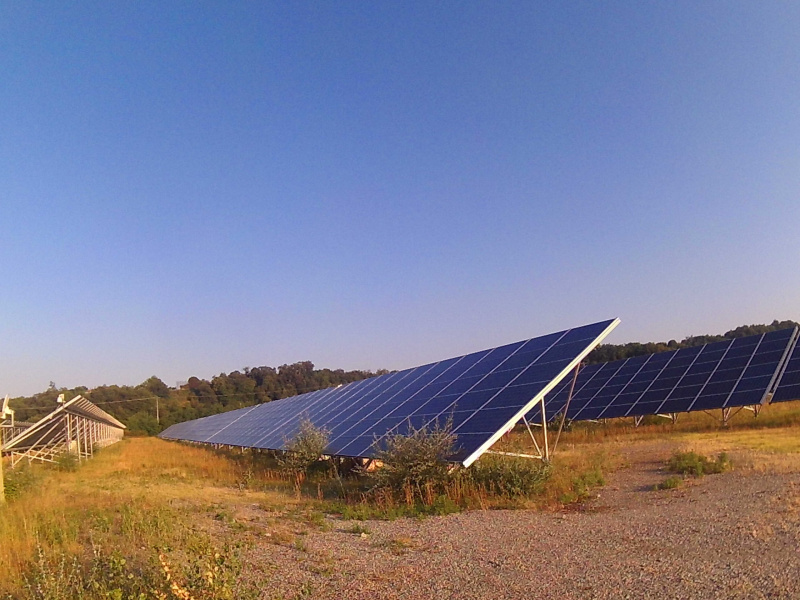Big Tech or Big Flop?
Innovations should serve the public, not the next Elon Musk. Invest in Alberta Innovates and InnoTech Alberta!
Jun 23, 2021
By Celia Shea, Communications
Robots, Netflix, and startups, oh my! Alberta’s Minister of Jobs, Economy and Innovation Doug Schweitzer loves to dazzle, but are his big plans just buzz words? After a year of gambling on Big Oil and losing, the UCP is desperate to rebrand the province (and itself). But AUPE Vice-President Kevin Barry says the provincial government’s “diversification” strategy is nothing more than cash grabs and gimmicks doomed to repeat the failures of Alberta’s dried up oil and gas industry.
“Our government isn’t leading our economy into the future. They’re dragging Albertans in circles,” Barry says. “Every plan the Premier and Minister has to ‘reboot the economy’ wasn’t made with working people in mind. It was designed to earn the next Elon Musk and Brett Wilson millions.”
Last year, Minister Schweitzer shouted his false provincial patriotism from the rooftops when he tweeted that “Alberta is coming to play in the tech and innovation space. We’re putting the rest of Canada on notice that we are going to beat provinces like Ontario and B.C.”

One of his stunts included giving Alberta Enterprise Corporation (AEC) $175 million. Established in 2008, the AEC has been draining public resources and pouring Albertans’ hard-earned money into venture capital (VC) firms for over a decade. This scam might thrill investors and offer a few token jobs, but most VC-backed startups implode within ten years - the typical lifespan of a VC fund. Over a decade, Venture Capitalists pepper money across multiple start-ups, then they wait to see which one finds a market. Sometimes one or two do, but only those startups usually get more funding. And the projects that do survive don’t always generate the innovations and services people need, just the ones primed to turn profits for shareholders.
“In other words, the UCP is just promoting the same old capitalism, different capitalist,” concludes Barry. “Real economic diversification won’t mirror the old world, though. Our members know this and those who work in research are proof that true innovation only comes from radical change."
Saving Alberta Innovates and InnoTech Alberta
Barry is referring to the 190 members employed at Alberta Innovates and its subsidiary InnoTech Alberta, government agencies that replaced one of Alberta’s first crown corporations, the Alberta Research Council, in 2010.
Our members at Innovates and InnoTech pursue extremely diverse projects in agriculture, energy, data and more to advance technologies that benefit all Albertans. They’re not just chasing the next fad gadget or big patent. They’re building on decades of top-notch research that promotes clean drinking water, solar-energy solutions, support for small farms and local food sources, safe cannabis-based medicine and so much more. But they can only keep doing this if their work remains public.

When corporations outsource research to third parties to save themselves money, the dynamic AB Innovates and InnoTech teams in Devon, Vegreville, Calgary and Edmonton step in and shoulder the toughest and costliest research. While governments conspiratorially wink at greedy industries to let them “self-report” environmental tests, InnoTech saves the day and handles the tests to protect our most vulnerable communities and ecosystems.
Other than InnoTech Alberta, private, for-profit labs dominate the landscape of third-party research and development (R&D). Back in March 2021, their association, the Canadian Council of Independent Laboratories (CCIL), expressed concerns that the agency has an unfair advantage in the market because of the public funds it receives which allow it to offer below-average rates for services.
This accusation is nothing more than a myth; our members aren’t competing with private labs. In fact, they’re doing the critical research most avoid because it doesn’t reap immediate financial rewards for their CEOs and shareholders. But this hasn’t stopped the CCIL from lobbying the government to privatize Alberta Innovates and InnoTech Alberta - a move that Barry says would cost Albertans dearly.
“Our members at Innovates and InnoTech pursue extremely diverse projects in agriculture, energy, data and more to advance technologies that benefit all Albertans. They’re not just chasing the next fad gadget or big patent. They’re building on decades of top-notch research that promotes clean drinking water, solar-energy solutions, support for small farms and local food sources, safe cannabis-based medicine and so much more. But they can only keep doing this if their work remains public.”
If Innovates and Innotech weren’t spearheading these projects, the work, along with quality jobs, would go elsewhere. In 2018-19 alone, the agency indirectly created 2,000 private-sector jobs in Alberta. It also directly hired some of the brightest post-secondary graduates in the province. But as the UCP scaled back funding for AB Innovates in 2019 by $76 million, which cost approximately 125 Albertans their jobs, members started fearing for their occupations and the future of Alberta’s research landscape.
“Decades of government negligence have gutted Innovates,” adds Barry. “This latest attack by the CCIL and the UCP is just one more attempt to reduce the agency to rubble.”
Despite the attack, staff continue to pour their hearts, souls and minds into their work and push for better governance of the agency “because they know they’re fighting for something bigger than just their jobs,” Barry says.
Democratizing the future
To make Alberta’s tech, research and innovation sectors flourish, Albertans must keep the profit-motive out of AB Innovates and Innotech Alberta. But returning the agency to a robustly funded public service is only the beginning of a bigger goal, which is an information economy that belongs to Alberta workers, not Big Tech and big business. Contrary to what the UCP says, corporate behemoths aren’t the answer to Alberta’s oil crash.
“Hearing Minister Schweitzer brag about Alberta’s deals with Netflix, as if a couple shiny contracts make up for the mountain of public-sector jobs his government cut or the local arts funding it crushed, makes me sick,” says Barry.
We already know where Uber, Amazon, Netflix, and the other giants stand on workers’ rights. Albertans don’t want unionbusters and tech companies that widened inequities in the film industry running the show. Albertans deservepublicly owned, democratically controlled tech hubs and research institutions, which AUPE members are trying to create, and workers have done it before:

1. The Posties deliver a Green New Deal that will work for everyone
Rather than treating new technologies as a threat, the Canadian Union of Postal Workers (CUPW) is embracing them as an opportunity to fight climate change and build community power. As part of their Delivering Community Power campaign, staff are demanding that the employer not only replace its Canada Post vehicles with electric models to cut greenhouse gas emissions, but also expand the fleet to compete with Amazon’s aggressive door-to-door delivery service and stop it from crushing local artisans, small businesses, and workers’ rights.
The Posties are also determined to fill the voids that big banks and giant telecommunications companies have gouged in rural and Indigenous communities by creating a nationwide public system of accessible low-fee banking services and free internet.
Because Canada Post has some of the most extensive logistics, transportation, and retail infrastructure in the country, these reforms could completely transform multiple sectors of the economy. Who knows what revolutions Delivering Community Power will spark? Maybe a nationalized electric-vehicle lab and factory! Or perhaps publicly owned telecom companies that prioritize accessible services and quality inventions over profits. If Albertans have the support of their governments, they have all the brain and muscle they need to bring these tech dreams to life.

2. AUPE says ‘make vaccines public’
Once upon a time – years before COVID-19 – Canadians had their very own vaccine research and development company. Owned and operated by the public, Connaught was a world-wide leader in vaccine research, production, and distribution because it provided medicine at-cost to Canadians and people around the world. Unlike Big Pharma, its sole purpose was to supply life-saving vaccines to as many people as possible, as cheaply as possible.
But Pfizer, Moderna, and the other for-profit pharmaceutical corporations are motivated by one thing – patents. And thanks to unfair intellectual property rights, they have the power to choose who uses and manufactures their creations –and at what price—for two whole decades. Gatekeeping makes them millions, but it comes at a cost, and the world is paying the price right now. Patents are the main reason some countries -- the wealthier ones -- hoarded the COVID-19 vaccine, while other countries had zero access to it and languished in the first, second and third waves of the pandemic.
Here in Alberta, Minister Schweitzer, a champion of intellectual property laws, wants to make commercialization of innovations even easier. AUPE members are challenging his business-bent and calling for a new publicly owned vaccine company, like Connaught. But let’s not stop there – why not make all medical research labs public.
3. First Nation changes the face of mask-making
While the product itself is not new, this First Nation’s manufacturing approach is! When the pandemic hit, Albertans needed masks, but not everyone had equal access to life-saving Personal Protective Equipment (PPE).
To fill the need for face coverings in his community, Jacob Faithful of Frog Lake First Nations, repurposed a local gymnasium on the reserve, turning it into a mask factory that is fully staffed, owned, and operated by Frog Lake First Nations residents. While Young Spirit Supplies is not 100% community owned, the Nation does have a 49% stake in the company, which means everyone benefits from its revenue. What’s more, every mask features designs by Indigenous artist Natasha Root.
We see this company as an inspiring first step towards more publicly owned manufacturing operations that re-invent how everyday products are distributed and made.
All these examples tell us that that there is an alternative to Minister Schweitzer’s agenda. We don’t have to settle for a “diversification strategy” that wants Olds College converted into “the next silicon Valley” or research initiatives that rely on corporate money. Instead, we can build a better Alberta using our collective innovative spirit.